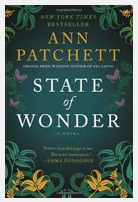Yesterday I pulled Jake's name out of the hat. His name, the most important word in the world to our friend, became our teacher. Their names are powerful. Anytime I'm wise enough to connect our learning to them, engagement unquestionably increases. Here's a list of a few of the things his name taught us.
- Use complete sentences when answering questions and when writing.
- Writers return sweep when they run out of space.
- Names are made out of letters, not words or sentences.
- Names begin with a capital letter.
- Words are made of tall, small, and descending letters.
- Words are made of claps, soon to be called syllables.
- Rhymers are good readers.
- Words can be pulled slowly out of the mouth.
- The letters in a word can't be mixed up. That word will always be spelled the same.
- The letter e at the end of a word is silent and can make the other vowel say its name.
This week I introduced writing workshop. Writing is always centered around their lives, stories, interests, and topics. All their abilities are different, but they're all engaged. I can't imagine the frustration of convincing little people to become writers if daily writing consistently revolved around my interests, prompts, or topics.
A few days ago we used our math journals for the first time. "There are 10 boys, 13 girls, and 1 teacher in our class. How many people are there? Solve it in a way that makes sense to you." They instantly began crunching numbers and solving in various ways. Every problem we tackle in those journals this year will be about them.
There's another side to this story though. I can also envision the times when I've worked way too hard to drag some interest out of them. I've witnessed the glazed over looks. I know what it's like to lose them and then try to teach, while putting out small but frustrating behavioral fires. I suppose there are several factors to consider and analyze when situations like this arise, but maybe much of it could be avoided and time saved if I had thought through their interests first. Here's what I want to keep in mind for the next nine months. If there's a connection to be made, start there. If there's not, look harder. Find one.

















